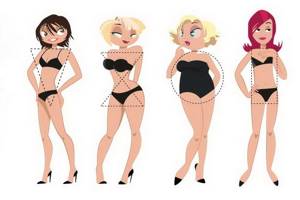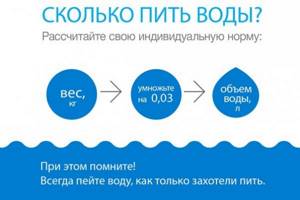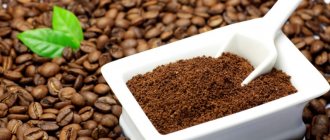07.07.2020 09:00
2317
Some people who adhere to proper nutrition and regularly exercise to lose weight note that after some time, weight loss stops. You can get your weight off the ground if you follow simple recommendations.
Author: Ashurbekova Shamsiyat Tofikovna
Some people who adhere to proper nutrition and regularly exercise to lose weight note that after some time, weight loss stops. They begin to limit themselves even more in food and exercise more often, but they do not achieve results. You can get your weight off the ground if you follow simple recommendations.
Nutrition Journal
Get a notebook and note down everything you ate during the day. Such a diary will help you control your weight, analyze your diet, and identify eating habits and addictions. Many people who start keeping a food journal are surprised to discover that “hidden” calories are included in their diet: eating with a group, snacking on the run or while watching a movie, etc. The diary will allow you to adjust the menu and avoid unnecessary products, which will have a positive effect on metabolism and the functioning of the gastrointestinal tract.

2. Possible causes of weight loss
In cases where weight loss and loss of appetite are not clearly related to any factors, a thorough examination is necessary. However, often a person simply does not know that certain accompanying symptoms suggest a possible cause for the onset of weight loss. Let's consider possible connections between weight loss and internal and external factors.
Gastrointestinal diseases. In the presence of chronic or acute diseases of the digestive tract, not only appetite is disrupted, but also the mechanisms of digestion and absorption of nutrients. Even a gentle fractional diet often does not allow you to avoid weight loss with gastritis, duodenitis, pancreatitis, stomach and intestinal ulcers. Gastrointestinal diseases are indicated by concomitant symptoms (nausea, pain in the stomach and intestines, flatulence, diarrhea).
Endocrine pathologies. Disturbances in the functioning of the endocrine glands cause changes in hormonal levels, which inevitably affects weight. Metabolism in diseases of this series is significantly impaired. In this case, weight can greatly decrease or increase against the background of the usual diet and diet.
Oncological diseases. Depending on the location of the focus of malignant tumor diseases, weight loss is observed in the early or later stages. Weakness during weight loss in this case is accompanied by apathy, anxiety, localized or wandering pain, and low-grade fever.
General and intestinal infections. Acute conditions during infection cause a response, expressed, among other manifestations, by a decrease in appetite. At the same time, dehydration occurs and the activity of digestive enzymes decreases, which further aggravates exhaustion. Serious infections (HIV, syphilis, malaria, tuberculosis), even in a latent course, lead to emaciation.
Parasites. A frequent sign of childhood parasitic diseases (helminthiasis, ascariasis, etc.) is causeless weight loss. At any age, diagnosis for weight loss includes examination of stool and blood for the presence of parasites.
Neurological disorders. Appetite is very closely related to psychoneurological status. Weight loss during periods of stress is compensated after it subsides. Severe depression can lead to prolonged refusal of food and severe weight loss. Often a cyclic mechanism is triggered, in which the onset of exhaustion affects the psyche. In this case, independent exit from the vicious circle becomes impossible and the help of specialists is necessary. One of the most striking examples of such weight loss is anorexia, which poses a real threat to life.
Alcoholism, drug addiction, smoking. Regular intake of toxins leads to serious metabolic disorders in combination with psychological dependence. Rapid weight loss in adolescents suggests addiction. Over time, drug addiction diseases lead to the destruction of the liver, lungs, digestive organs, and decreased immunity. This makes exhaustion even worse.
Some medications cause a temporary decrease in appetite. For preventive purposes, their inclusion in the treatment regimen should be combined with the prescription of an appropriate diet.
Visit our Gastroenterology page
Drinking water
Liquid increases calorie consumption: if you drink just two glasses of water, then after 10 minutes the rate of metabolic reactions will increase by 30%, and this effect will last for half an hour. When drinking 2 liters of liquid per day, our body loses almost 100 kcal - about the same as if you swam in a pool for 30 minutes. Interesting fact: if you drink cold water, your calorie consumption will be even greater, since your body will need additional energy to heat it up. In addition, liquid reduces appetite, so you should start each meal with a glass of clean water - this way you will eat much less.
Reason 4. Individual characteristics
Sometimes the stomach does not lose weight not at all because of mistakes in nutrition or training. The reasons lie much deeper, and this is not entirely good news. If the diet can be changed and sports activities adjusted, then it will be much more difficult to cope with the individual characteristics of the body and lifestyle. Why doesn’t visceral fat dissolve in the abdominal cavity and allow you to boast of a wasp waist?
- This is how nature intended
The abdominal cavity performs special functions in the body. It is here that the organs that are most important for human life are located. And as nature intended, the body protects them in a variety of ways. For example, the brain is hidden behind a very strong skull - in the same way, on the stomach, the fat layer acts as an airbag. And it is the last thing the body will part with when losing weight.
- Body type
If you are the owner of an “apple” figure, then you are by nature predisposed to the formation of fat deposits in the abdominal area.

- Diseases
An enlarged abdomen is a consequence of diseases such as hormonal imbalance, pathologies of the endocrine system, diabetes mellitus, and intestinal problems. And until you treat them (which is quite difficult with diabetes, for example), no diet or the most effective workouts can help you get rid of fat ballast.
- Lifestyle
Some ladies, while strenuously playing sports and working out seven sweats in the gym, for some reason do not consider it necessary to streamline their diet. It’s a mistake to think that the calories spent during training are more than enough to fill you up with your favorite fried potatoes in the evening.
And vice versa. Some have tried 100 diets, but still lead a sedentary lifestyle. You need to realize that these two components work only in a single complex and nothing else.
- Age
If you are over 35, there is no need to look with envy at young girls with flat tummies. Their metabolism is much faster, and they produce 2 times more collagen than you, which contributes to their rapid weight loss.
It seems like you started going to the gym at the same time, but she already has a figure like Barbie, and your belly is still not losing weight and sags treacherously. Why is this happening? The fact is that with age, the muscle corset tends to weaken, which leads to such a loosening of the peritoneum. Anti-cellulite creams and cosmetic procedures involving hyaluronic acid and collagen can help here.
Is there enough sleep?
Scientists have proven that lack of sleep leads to the development of stressful conditions. If you don’t sleep enough, cortisol, the stress hormone, accumulates in the body in large quantities. It, in turn, prevents weight loss and negatively affects the building of muscle tissue due to its destructive effect on protein compounds. It is for this reason that it is necessary to maintain a daily routine: go to bed and get up at the same time, allotting 7-8 hours for sleep. Another important point: lack of sleep increases cravings for certain foods, especially those high in fats and carbohydrates.
How to speed up your metabolism if you gain weight. The plateau effect or why weight loss stopped
Most often, the plateau effect occurs when the body takes a break to recover. This is a natural process when reducing body fat. When weight loss occurs, the human body requires restructuring. It may take some time. The duration of the restructuring process is explained by the heterogeneity of adipose tissue - when it is lost, the spatial arrangement of body cells changes, unused capillaries are reduced.
It must be taken into account that fat in the human body is voluminous, but light. Therefore, losing weight with practically stable numbers on the scales can continue. And if the weight has stopped decreasing, there is a possibility that a stage of volume loss has begun. This is why many athletes and nutritionists focus only on the values on a measuring tape, and not on the numbers when weighing.
Remember that constant weighing will not affect the result in any way, but it can worsen your mood! You need to use a measuring tape to track the dynamics of changes when doing strength exercises. After all, muscle tissue is heavier in weight than fat.
There are several main reasons for the appearance of the plateau effect when all conditions for weight loss are met:
- Non-compliance with diet.
- Too much or not enough calories consumed.
- The presence of excess fluid in the body or its lack.
- Premenstrual period in women.
- Insufficient or too intense training.
- Emphasis only on strength training in the training program.
- The need to change the training program after habituation.
Whatever the reason for stopping the weight loss process, a plateau effect is the norm in losing weight. Losing body weight on a permanent basis is impossible. If the weight has risen, this can be perceived as a break that the body needs at the moment. The only important thing is to continue to follow your training and nutrition program.
Changing your training schedule
All exercises can be divided into cardio and strength. Which of them give the maximum effect in losing weight? When you do low walking, slow running or cycling for a long time, the body gets used to the stress, and fat burning occurs only during exercise. As for strength training, metabolism occurs at a high level even after its completion. At this time, the body’s work is aimed at effectively “eliminating” fat. To speed up your metabolism and work out all your muscles, you need to combine different exercises, for example, circuit training with interval cardio.
What to do if the weight is
To overcome the plateau effect, when you work out and the weight does not come off, it is not necessary to change or cut the calorie content of the menu. You need to introduce a light, fasting day, during which your meals will consist of fruit, vegetable dishes and foods with a high protein content. The best way to lose weight is to eat healthy . Do not forget that on fasting days, intense training should stop so as not to harm your health.
Another method. We adhere to the constant principle of nutrition, correct and healthy, but we make adjustments to the training process. For example, we replace several, from one to two, sessions with aerobic exercise with interval training. The intervals should be of a peak nature and performed at maximum speed. As a result, energy consumption during exercise increases and metabolism accelerates after training, which will push you off the plateau effect and the weight will begin to fall off along with the volume again.
What to do to overcome the plateau
Start by analyzing the reasons for the plateau. First of all, you should visit a doctor and rule out possible diseases. If the weight has risen due to your own mistakes, use any of these methods:
- Food diary.
It will help you keep track of your balanced diet. In addition to caloric content, we consider BZHU - normally, proteins should account for 30–35% of the diet, fats – 15–20%. The remaining 45–55% are carbohydrates, preferably complex ones.
- Fasting days.
One or two days a week we do unloading. Proteins (kefir, cottage cheese, chicken) can remove excess water from the body. Fruit and vegetable fasting will help cleanse the intestines well. Physical activity during such periods should be reduced.
- Reducing the amount of carbohydrates.
We review our diet in favor of proteins and fats, and reduce the amount of carbohydrates by at least half. The effect will be quick and visible, because they retain excess water in the body and cause swelling. Having overcome the plateau, you can gradually return to the usual balance of BJU.
- Cascade fasting.
Its principle is to observe the “food window”. Food can be taken only during a certain period of the day, the rest of the time - low-calorie drinks (water, tea, coffee). The usual options are 8/16 or 6/18 hours.
- Calorie Zigzag.
To prevent metabolism from slowing down, we adhere to the zigzag rule. We calculate your weekly caloric intake and distribute it so that you get a different amount of calories every day.
- Cheat meal.
We allow ourselves one unhealthy meal per week. It will help relieve psychological stress and calmly overcome the dietary plateau without breakdowns.
- Physical activity.
We add power loads, increase the intensity of exercises or their number. Circular or interval training will help you overcome plateaus. We try to move more during working hours and at home.

If you start to plateau, try not to weigh yourself every day - this will make you more nervous. Once a week is enough to control weight
The volume is gone, but the weight remains: what to do?
If the volume is gone, but the weight remains, then you should give your body a shock situation - allow yourself a conscious gastronomic breakdown, radically change the intensity of physical activity. But if these measures do not give a positive result within 1-2 weeks, then you will need to analyze your own lifestyle.
Full sleep
With insufficient sleep, the body compensates for rest with food - uncontrolled weight gain occurs. At the same time, hormonal levels are disrupted - a large amount of cortisone is produced and the level of serotonin decreases: the “hormone of joy”, the lack of which is compensated by fast carbohydrates.
An adult should sleep at least 7 hours a day. And not in fits and starts with the addition of daytime rest, but fully at night.
Fractional meals

Nutritionists recommend eating food in small portions and every 3 hours. The menu should consist of a variety of fruits and vegetables, proteins and “healthy” carbohydrates. Fasting is strictly prohibited, because if the amount of calories incoming is too small, the body begins to spend energy sparingly - weight loss is guaranteed.
Drinking enough water
Water actively removes waste and toxins from the body, cleanses the genitourinary system and intestines, and satisfies false hunger. The debate about how much water a person needs per day has been going on for a long time; there is still no consensus. But those losing weight should drink at least one and a half liters per day, and if they actively engage in sports, then the volume increases by 2 times.

How to maintain weight after a diet
Follow a balanced diet, eat as little baked goods, sweets, fatty foods, and fried foods as possible. Don't forget to include fresh vegetables and fruits, salads, cereals, legumes, some nuts and berries in your daily menu.
Also try to maintain a comfortable level of physical activity. Sedentary work is harmful to health and contributes to weight gain, so choose a pleasant type of exercise for yourself: walking, running, swimming, gym. The main thing is that you move regularly. If your level of physical activity and diet remain stable, but your weight is growing rapidly: for example, 5 kilograms per month, despite the fact that your eating habits have not changed and you have not stopped walking or playing sports, consult a doctor. With a high degree of probability, the problem is not in your diet, but in your health.
Delivery of balanced nutrition | Delivery of healthy nutrition reviews | Healthy eating for the office | Moscow detox set | Fish program at home | Complex for weight loss | Nutrition for athletes with delivery Moscow | Vegetarian food at home Moscow
Volumes go away, but weight stays: what to look for the reason
The weight stays the same, despite strict adherence to the diet and regular physical activity, but the volume slowly goes away - this is a phenomenon faced by those who have lost weight “with experience”; doctors say that this is a completely normal phenomenon:
- the body is accustomed to regular physical activity;
- metabolic processes have slowed down;
- the body has fully adapted to the stressful lifestyle;
- the moment of laziness came - the body stopped burning fat.
This moment in the weight loss process is called the plateau effect, it lasts from 2 weeks to several months. During this period, it is important not to give up what you started and continue to follow the principles of proper nutrition and exercise.

You can “push” the body and force it to actively burn fat again by intensifying training, moving sports from the evening to the morning or vice versa. If such measures do not give the desired result, then it is worthwhile to adjust your diet - do not starve, but simply change your usual menu.
Switch to proper nutrition with Grow Food
Fashionable diets are always built on strict restrictions and do not provide long-term effects. A proper nutrition system not only helps you overcome a plateau, but also improves your health and figure.
All menus from Grow Food are designed to meet the daily caloric needs of people with different lifestyles and different goals. The energy value of diets varies from 800 to 2500 kcal.
If you are already using one of the Grow Food lines and your weight loss process has stopped, simply change your diet - choose a different plan with lower calorie content. This will help you overcome your dietary plateau without any extra effort.

Diets after which the weight does not return
These are diets that you can stick to constantly, which seem satisfying, tasty and enjoyable. In other words, a diet after which the weight does not return is a balanced diet. Often it requires a complete restructuring of eating habits, giving up alcohol, limiting the consumption of sweet, fatty, spicy, mayonnaise and sauces from stores.
If you don’t want the extra pounds to return, then don’t chase quick results. Quickly lost kilograms come back just as quickly. The normal rate of weight loss is 0.5-3 kg per week. If you are healthy and lose 5-10 kg per week, then rest assured: these kilograms will return sooner or later.










